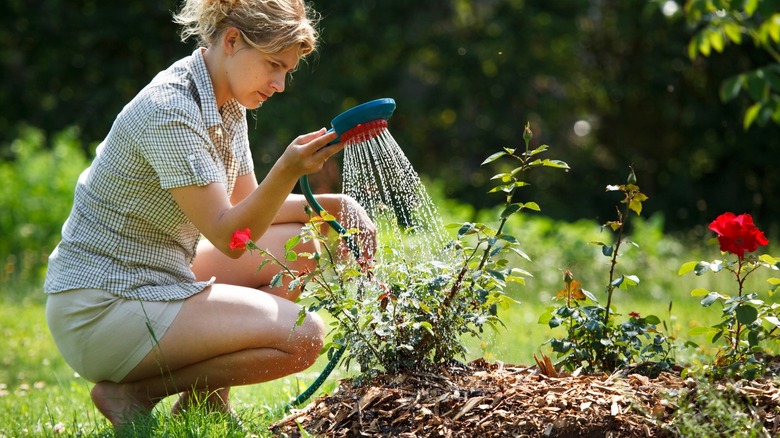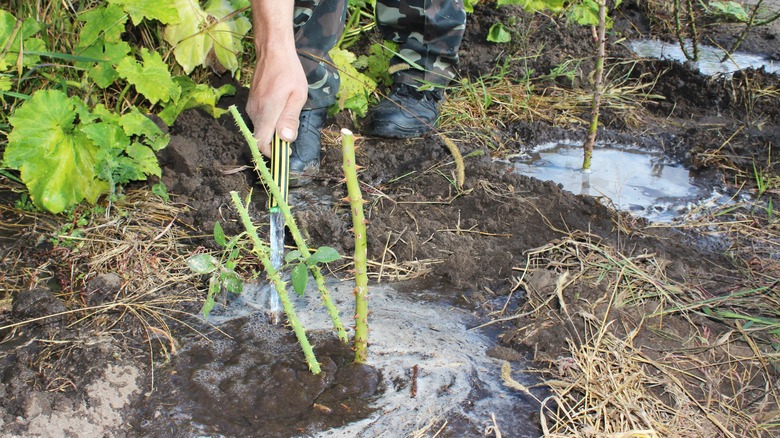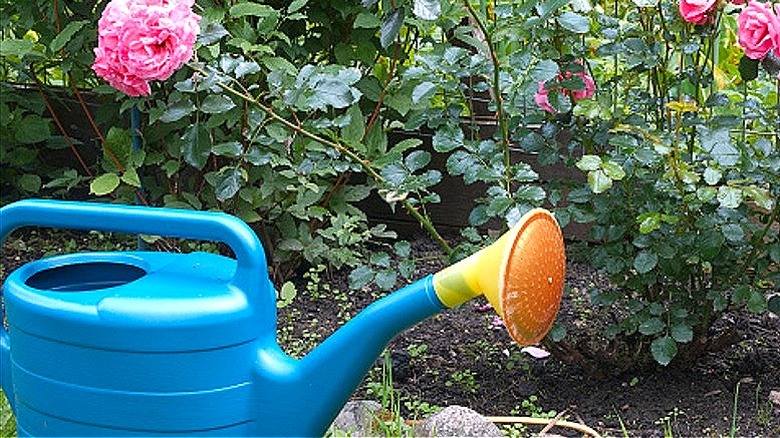The Best Method For Watering Roses
Undoubtedly, a rose (Rosa rubiginosa) by any other name would smell just as sweet, but only if it matures into a healthy plant. So to grow a happy and disease-free rose bush in your garden, it's essential to water it adequately using the best methods at your disposal. Depending on your plant's watering needs, your budget, and the time on your hands, there are a few tried-and-true methods to try, including a watering wand, watering can, or dripper system.
Water is crucial for rose plants because it plays a key role in the distribution of nutrients, encouraging stem growth. It's responsible for the generation of new flowers, too. Further, a well-watered rose bush can develop stronger and deeper roots, allowing the plant to absorb nutrients better. Deeper roots also help the plants to establish themselves, turning them drought-resistant since they can draw moisture directly from the soil. Even though adequately watering your roses is essential, it's important to not overwater them: Overwatering will prevent oxygen from reaching the roots, causing root rot. So figuring out the best way to water your roses is vital.
How to water your roses
You want to water your roses in a way that reaches deep into their roots and propels their growth. For established planted roses, the best method is to water the soil (once or twice a week) until the water begins to pool around the plant. Ideally, you want to soak the soil to 18 inches deep per watering.
During their first year of planting, roses must be thoroughly watered at least two to three times a week. If you're unable to gauge the watering frequency for your plant, a rule of thumb is to water the bushes as soon as the flowers begin drooping. If you don't want it to come to that, you can check if the soil is dry or damp to decide when to water your rose.
The water requirement also depends on weather conditions and soil type. For instance, if the temperatures are soaring and your bushes are bearing the brunt of direct sunshine, they need to be watered more than bushes experiencing rainfall. You'll also need to water your plants more frequently if the weather is particularly windy or the soil drains quickly.
Mistakes to avoid when watering roses
No matter the watering method you choose, when watering your roses, always remember to water the soil — not the flowers or the foliage. This can weigh the plant down and promote fungal growth if the leaves remain wet overnight. You must also water the plants gently (e.g., via a watering can with a rose attachment), as high pressure or a sudden deluge can lead to soil erosion. Additionally, don't give your roses a small amount of water daily. While you might be trying to ensure your plant doesn't go thirsty, it'll promote the growth of roots near the surface of the soil, leaving your plants less stable.
The best time to water your roses is early in the morning before the sun is shining overhead. This will give the plants enough time to absorb water before they evaporate. To slow down evaporation and optimize water retention, apply a thin layer of eco-friendly mulch over the topsoil. There's no rule against watering your plants in the evening, but the damp soil conditions will invite rose slugs, snails, and other insects to chew on your plant's leaves at night.


